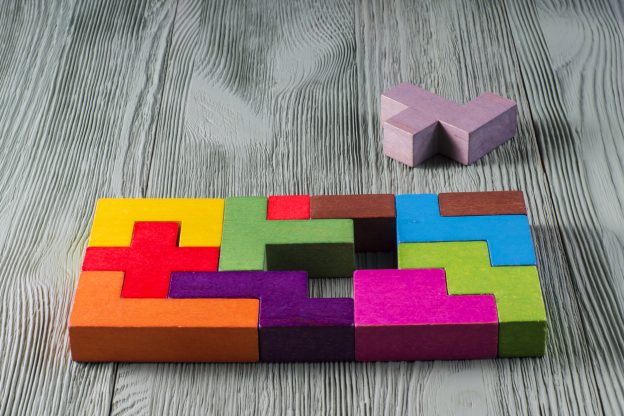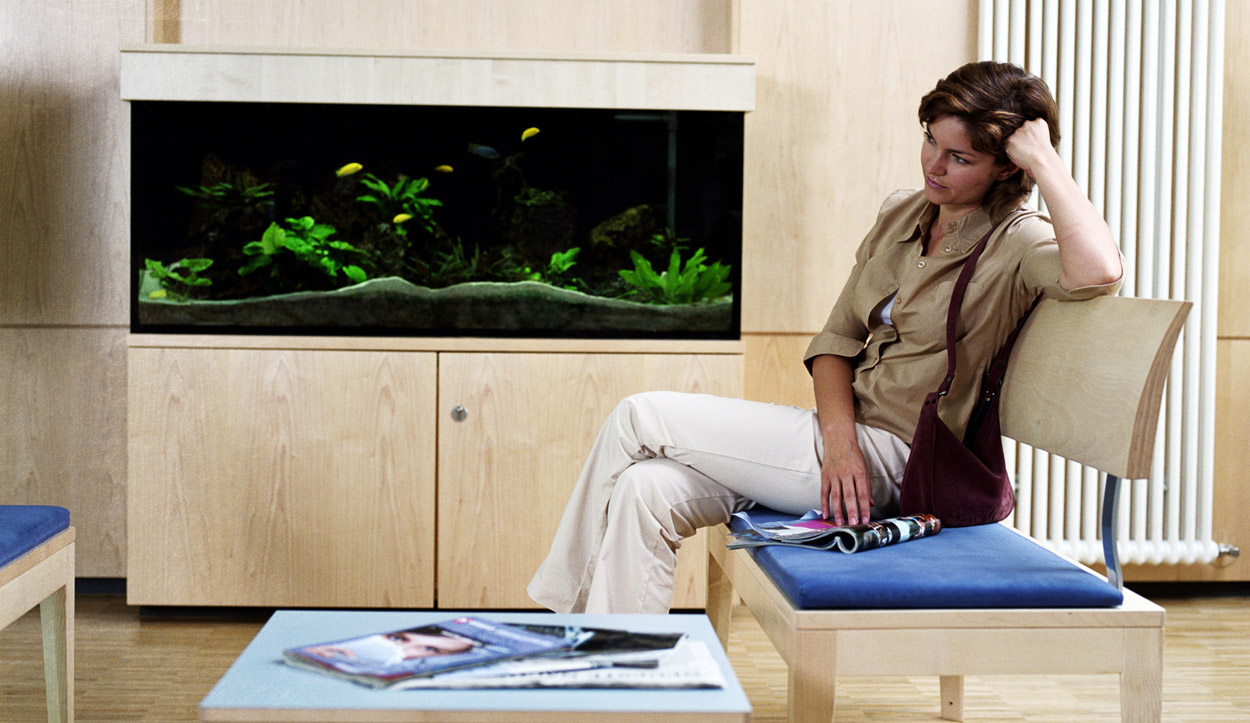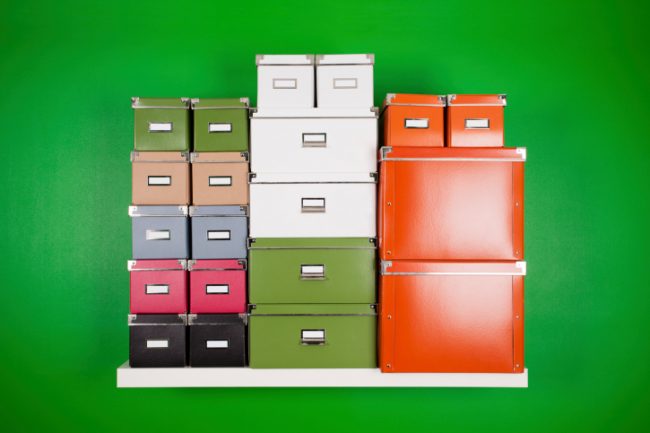
Parenting  Read: 6 Simple Tips for Decluttering Your Home and Your Life
By: Rivka Caroline
Intro: “With all the special needs-related items that us special needs parents spend so much of our time on, it would make sense that we get a free pass when it comes to keeping the house clean! Sadly, this just isn’t the case. The following six tips are intended to help leverage your time and help keep your home clutter and stress-free.” Read more
Categories: Give everything a home • Have a ‘give away’ box around every corner • Don’t bring home clutter • Train the children • Don’t put it down, put it away • Put it in your calendar • Read more
Quick Start: “Resist the urge to buy these bargain-priced pieces of clutter by making sure that you only shop when it’s necessary and that you only buy items that you truly need.” Read more
Read: 6 Simple Tips for Decluttering Your Home and Your Life
By: Rivka Caroline
Intro: “With all the special needs-related items that us special needs parents spend so much of our time on, it would make sense that we get a free pass when it comes to keeping the house clean! Sadly, this just isn’t the case. The following six tips are intended to help leverage your time and help keep your home clutter and stress-free.” Read more
Categories: Give everything a home • Have a ‘give away’ box around every corner • Don’t bring home clutter • Train the children • Don’t put it down, put it away • Put it in your calendar • Read more
Quick Start: “Resist the urge to buy these bargain-priced pieces of clutter by making sure that you only shop when it’s necessary and that you only buy items that you truly need.” Read more
 Read: How to Create and Use a Caregiver's Calendar
By: Jolene Philo
Intro: “Caregiving is a multifaceted undertaking. It’s a relationship that encompasses the tending of a loved one’s physical, emotional, and social needs. More often than not, meeting those needs requires a good deal of planning and organization. But, as caregivers know, planning and organization takes time, an unruly commodity that can be hard to control. This post looks at ways to use a month-by-month calendar to better tame your time.” Read more
Categories: How to Create a Month-by-Month Calendar • How to Use a Month-by-Month Calendar • How to Create a Calendar Habit • Read more
Quick Start: “An inexpensive way to create calendars is to download and print them out. Just type “downloadable monthly calendars” in your browser’s search engine, and you’ll find plenty to choose from. Once you select and print out a style you like, it can be stored in a three-ring binder.” Read more
Read: How to Create and Use a Caregiver's Calendar
By: Jolene Philo
Intro: “Caregiving is a multifaceted undertaking. It’s a relationship that encompasses the tending of a loved one’s physical, emotional, and social needs. More often than not, meeting those needs requires a good deal of planning and organization. But, as caregivers know, planning and organization takes time, an unruly commodity that can be hard to control. This post looks at ways to use a month-by-month calendar to better tame your time.” Read more
Categories: How to Create a Month-by-Month Calendar • How to Use a Month-by-Month Calendar • How to Create a Calendar Habit • Read more
Quick Start: “An inexpensive way to create calendars is to download and print them out. Just type “downloadable monthly calendars” in your browser’s search engine, and you’ll find plenty to choose from. Once you select and print out a style you like, it can be stored in a three-ring binder.” Read more
 Read: The 10 Best Apps to Help Manage Busy Special Needs Families
By: Lauren Lewis
Intro: "With technology at our fingertips, there are some great apps to aid in keeping track of all the big and little details going on in the family. From apps to help you manage schedules to apps allowing you to easily share pictures and stories with your family, you are bound to find something suitable for all of your family’s needs." Read more
Categories: Productivity apps • Social apps • Read more
Quick start: “Cozi is a free mobile app and website that helps you manage the family schedule, organize shopping lists and to do lists, and capture favorite memories—all in one place.” Read more
Read: The 10 Best Apps to Help Manage Busy Special Needs Families
By: Lauren Lewis
Intro: "With technology at our fingertips, there are some great apps to aid in keeping track of all the big and little details going on in the family. From apps to help you manage schedules to apps allowing you to easily share pictures and stories with your family, you are bound to find something suitable for all of your family’s needs." Read more
Categories: Productivity apps • Social apps • Read more
Quick start: “Cozi is a free mobile app and website that helps you manage the family schedule, organize shopping lists and to do lists, and capture favorite memories—all in one place.” Read more
 Read: 6 Tips to Help Special Needs Parents Balance Work and Childcare
By: Emma Sterland
Intro: “Balancing work and childcare is never easy, but when you’re caring for a child with special needs, the challenges are even greater. The caring role can be extremely unpredictable; hospital appointments, therapy sessions, sudden illnesses … they can all mean having to take time off work. Finding specialist childcare for the school holidays is no small task, and then, of course there’s the strain of combining work and care.” Read more
Categories: “Work Is My Respite” • So How Do You Successfully Balance Work and Caring? • Read more
Quick Start: “Buy two of non-perishable items like washing up liquid, so you always have one in reserve.” Read more
Read: 6 Tips to Help Special Needs Parents Balance Work and Childcare
By: Emma Sterland
Intro: “Balancing work and childcare is never easy, but when you’re caring for a child with special needs, the challenges are even greater. The caring role can be extremely unpredictable; hospital appointments, therapy sessions, sudden illnesses … they can all mean having to take time off work. Finding specialist childcare for the school holidays is no small task, and then, of course there’s the strain of combining work and care.” Read more
Categories: “Work Is My Respite” • So How Do You Successfully Balance Work and Caring? • Read more
Quick Start: “Buy two of non-perishable items like washing up liquid, so you always have one in reserve.” Read more
 Read: Special Education: 5 Tips to Keep Your Child Organized
By: Sara Winter
Intro: “School is well under way and I see many kids walking through the halls literally under a mountain of stuff. How do we help kids on the autism spectrum not only keep track of it all, but in a perfect world, take ownership? Here are five tips I’ve learned along the way as a fly on a classroom wall.” Read more
Categories: Binders • Winter clothes • Agenda • Report cards • Notes home • Read more
Quick start: “Try using one huge six-inch binder. This will help keep everything in place.” Read more
Read: Special Education: 5 Tips to Keep Your Child Organized
By: Sara Winter
Intro: “School is well under way and I see many kids walking through the halls literally under a mountain of stuff. How do we help kids on the autism spectrum not only keep track of it all, but in a perfect world, take ownership? Here are five tips I’ve learned along the way as a fly on a classroom wall.” Read more
Categories: Binders • Winter clothes • Agenda • Report cards • Notes home • Read more
Quick start: “Try using one huge six-inch binder. This will help keep everything in place.” Read more
 Read: 7 Morning Sensory Tips for You and Your Child with Special Needs
By: Ilana Danneman
Intro: “Here are a few tips to get those muscles moving and brain cells working right from the start of the day. These tips are written for your sensory seeking, sensory deprived or sensory sensitive kids, but feel free to try them out on yourself first!” Read more
Categories: Start with a Stretch • Wash Up • An Attitude of Gratitude • Hydrate • Crunchy Breakfast • Morning Workout • Organization • Read more
Quick Start: "There is nothing like a good splash to the face and hands to alert the most sluggish of your clan." Read more
Read: 7 Morning Sensory Tips for You and Your Child with Special Needs
By: Ilana Danneman
Intro: “Here are a few tips to get those muscles moving and brain cells working right from the start of the day. These tips are written for your sensory seeking, sensory deprived or sensory sensitive kids, but feel free to try them out on yourself first!” Read more
Categories: Start with a Stretch • Wash Up • An Attitude of Gratitude • Hydrate • Crunchy Breakfast • Morning Workout • Organization • Read more
Quick Start: "There is nothing like a good splash to the face and hands to alert the most sluggish of your clan." Read more
 Read: 17 Features For A Sensory-Friendly, Therapeutic Kitchen
By: Karen Wang
Intro: “In many homes, the kitchen is the heart of family life. When a family member has special needs, the kitchen may take on additional importance due to its role in teaching life skills, sensory integration and other therapeutic goals. Our top priority in the kitchen has always been safety, followed by accessibility and comfort. Here is a description of 17 features that can turn any kitchen into a therapeutic and educational environment.” Read more
Categories: Safety • Accessibility • Decor • Read more
Quick Start: “Keep tea, cocoa, spices and dry herbs at an accessible level so that family members can explore various fragrances. When we moved our spices, we were surprised to learn that our son loves paprika and every type of pepper. Sensory integration begins in the kitchen!” Read more
Read: 17 Features For A Sensory-Friendly, Therapeutic Kitchen
By: Karen Wang
Intro: “In many homes, the kitchen is the heart of family life. When a family member has special needs, the kitchen may take on additional importance due to its role in teaching life skills, sensory integration and other therapeutic goals. Our top priority in the kitchen has always been safety, followed by accessibility and comfort. Here is a description of 17 features that can turn any kitchen into a therapeutic and educational environment.” Read more
Categories: Safety • Accessibility • Decor • Read more
Quick Start: “Keep tea, cocoa, spices and dry herbs at an accessible level so that family members can explore various fragrances. When we moved our spices, we were surprised to learn that our son loves paprika and every type of pepper. Sensory integration begins in the kitchen!” Read more
 Read: 27 Things to Do in a Waiting Room While Your Child Is in a Therapy Session
By: Jennifer Lovy
Intro: “Recently I was the lone parent in the waiting room. Even the receptionist had gone home. My phone became uninteresting and I put it away. Feeling free from the shackles of technology, I thought about different ways I could productively pass time in a waiting room. With a little help from Google, I came up with a list of things to do. Some are productive, others are meant to be nurturing and the rest are just plain silly.” Read more
Sample Ideas: Make lists • Plan your kids’ activities • Hunt for recipes • Homework help • Advocate • Read more
Quick Start: “Just for fun, think of things you probably should not do in a waiting room like starting the wave, trying to engage other parents in a game of Simon Says or yelling ‘free drinks in the sensory room.’” Read more
Read: 27 Things to Do in a Waiting Room While Your Child Is in a Therapy Session
By: Jennifer Lovy
Intro: “Recently I was the lone parent in the waiting room. Even the receptionist had gone home. My phone became uninteresting and I put it away. Feeling free from the shackles of technology, I thought about different ways I could productively pass time in a waiting room. With a little help from Google, I came up with a list of things to do. Some are productive, others are meant to be nurturing and the rest are just plain silly.” Read more
Sample Ideas: Make lists • Plan your kids’ activities • Hunt for recipes • Homework help • Advocate • Read more
Quick Start: “Just for fun, think of things you probably should not do in a waiting room like starting the wave, trying to engage other parents in a game of Simon Says or yelling ‘free drinks in the sensory room.’” Read more
 Read: 12 Skills and 5 Household Chores That Can Serve as Preparation for Future Vocation
By: Becca Eisenberg
Intro: “Chores at home can lead to greater success in vocational settings, especially with regard to taking responsibility and learning to respect authority.
Here’s five chores that can be worked into your child’s daily (or weekly) routine to help them with some vocational experience.” Read more
Categories: Laundry • Filing • Preparing Food • Recycling • Setting the Table • Read more
Quick Start: “Recycling is an ideal opportunity to have your child categorize the different items of plastic, paper, metal, etc.” Read more
Read: 12 Skills and 5 Household Chores That Can Serve as Preparation for Future Vocation
By: Becca Eisenberg
Intro: “Chores at home can lead to greater success in vocational settings, especially with regard to taking responsibility and learning to respect authority.
Here’s five chores that can be worked into your child’s daily (or weekly) routine to help them with some vocational experience.” Read more
Categories: Laundry • Filing • Preparing Food • Recycling • Setting the Table • Read more
Quick Start: “Recycling is an ideal opportunity to have your child categorize the different items of plastic, paper, metal, etc.” Read more
 Read: 10 Tips to Get Your Child with Special Needs More Organized
By: Ilana Danneman
Intro: “Why are some people more organized than others? Why do organizational skills come easily to some kids and others seem like they can’t find their own two feet? There are plenty of studies but after spending some time with a cognitive analyst (brain tester), I found the following quite interesting.” Read more
Categories: Card games • Brain games • Plan something • Body/brain games • Writers workshop • Puzzles • Art • Maid brigade • Heavy work • Exercise • Read more
Quick start: “Simon Says, Red Light/Green Light, Mother May I are all great body/brain games.” Read more
Read: 10 Tips to Get Your Child with Special Needs More Organized
By: Ilana Danneman
Intro: “Why are some people more organized than others? Why do organizational skills come easily to some kids and others seem like they can’t find their own two feet? There are plenty of studies but after spending some time with a cognitive analyst (brain tester), I found the following quite interesting.” Read more
Categories: Card games • Brain games • Plan something • Body/brain games • Writers workshop • Puzzles • Art • Maid brigade • Heavy work • Exercise • Read more
Quick start: “Simon Says, Red Light/Green Light, Mother May I are all great body/brain games.” Read more
10 Ways for Special Needs Families to Get Organized in 2017
Organization for families of children with special needs comes in all sorts of forms, and the Friendship Circle blog has addressed many of them with posts full of tips and ideas. Here are 10 ways to get yourself, your child, your family, and your home organized with the help of our expert writers.1. Organize your home.
 Read: 6 Simple Tips for Decluttering Your Home and Your Life
By: Rivka Caroline
Intro: “With all the special needs-related items that us special needs parents spend so much of our time on, it would make sense that we get a free pass when it comes to keeping the house clean! Sadly, this just isn’t the case. The following six tips are intended to help leverage your time and help keep your home clutter and stress-free.” Read more
Categories: Give everything a home • Have a ‘give away’ box around every corner • Don’t bring home clutter • Train the children • Don’t put it down, put it away • Put it in your calendar • Read more
Quick Start: “Resist the urge to buy these bargain-priced pieces of clutter by making sure that you only shop when it’s necessary and that you only buy items that you truly need.” Read more
Read: 6 Simple Tips for Decluttering Your Home and Your Life
By: Rivka Caroline
Intro: “With all the special needs-related items that us special needs parents spend so much of our time on, it would make sense that we get a free pass when it comes to keeping the house clean! Sadly, this just isn’t the case. The following six tips are intended to help leverage your time and help keep your home clutter and stress-free.” Read more
Categories: Give everything a home • Have a ‘give away’ box around every corner • Don’t bring home clutter • Train the children • Don’t put it down, put it away • Put it in your calendar • Read more
Quick Start: “Resist the urge to buy these bargain-priced pieces of clutter by making sure that you only shop when it’s necessary and that you only buy items that you truly need.” Read more
2. Organize your calendar.
 Read: How to Create and Use a Caregiver's Calendar
By: Jolene Philo
Intro: “Caregiving is a multifaceted undertaking. It’s a relationship that encompasses the tending of a loved one’s physical, emotional, and social needs. More often than not, meeting those needs requires a good deal of planning and organization. But, as caregivers know, planning and organization takes time, an unruly commodity that can be hard to control. This post looks at ways to use a month-by-month calendar to better tame your time.” Read more
Categories: How to Create a Month-by-Month Calendar • How to Use a Month-by-Month Calendar • How to Create a Calendar Habit • Read more
Quick Start: “An inexpensive way to create calendars is to download and print them out. Just type “downloadable monthly calendars” in your browser’s search engine, and you’ll find plenty to choose from. Once you select and print out a style you like, it can be stored in a three-ring binder.” Read more
Read: How to Create and Use a Caregiver's Calendar
By: Jolene Philo
Intro: “Caregiving is a multifaceted undertaking. It’s a relationship that encompasses the tending of a loved one’s physical, emotional, and social needs. More often than not, meeting those needs requires a good deal of planning and organization. But, as caregivers know, planning and organization takes time, an unruly commodity that can be hard to control. This post looks at ways to use a month-by-month calendar to better tame your time.” Read more
Categories: How to Create a Month-by-Month Calendar • How to Use a Month-by-Month Calendar • How to Create a Calendar Habit • Read more
Quick Start: “An inexpensive way to create calendars is to download and print them out. Just type “downloadable monthly calendars” in your browser’s search engine, and you’ll find plenty to choose from. Once you select and print out a style you like, it can be stored in a three-ring binder.” Read more
3. Organize with apps.
 Read: The 10 Best Apps to Help Manage Busy Special Needs Families
By: Lauren Lewis
Intro: "With technology at our fingertips, there are some great apps to aid in keeping track of all the big and little details going on in the family. From apps to help you manage schedules to apps allowing you to easily share pictures and stories with your family, you are bound to find something suitable for all of your family’s needs." Read more
Categories: Productivity apps • Social apps • Read more
Quick start: “Cozi is a free mobile app and website that helps you manage the family schedule, organize shopping lists and to do lists, and capture favorite memories—all in one place.” Read more
Read: The 10 Best Apps to Help Manage Busy Special Needs Families
By: Lauren Lewis
Intro: "With technology at our fingertips, there are some great apps to aid in keeping track of all the big and little details going on in the family. From apps to help you manage schedules to apps allowing you to easily share pictures and stories with your family, you are bound to find something suitable for all of your family’s needs." Read more
Categories: Productivity apps • Social apps • Read more
Quick start: “Cozi is a free mobile app and website that helps you manage the family schedule, organize shopping lists and to do lists, and capture favorite memories—all in one place.” Read more
4. Organize your work/life balance.
 Read: 6 Tips to Help Special Needs Parents Balance Work and Childcare
By: Emma Sterland
Intro: “Balancing work and childcare is never easy, but when you’re caring for a child with special needs, the challenges are even greater. The caring role can be extremely unpredictable; hospital appointments, therapy sessions, sudden illnesses … they can all mean having to take time off work. Finding specialist childcare for the school holidays is no small task, and then, of course there’s the strain of combining work and care.” Read more
Categories: “Work Is My Respite” • So How Do You Successfully Balance Work and Caring? • Read more
Quick Start: “Buy two of non-perishable items like washing up liquid, so you always have one in reserve.” Read more
Read: 6 Tips to Help Special Needs Parents Balance Work and Childcare
By: Emma Sterland
Intro: “Balancing work and childcare is never easy, but when you’re caring for a child with special needs, the challenges are even greater. The caring role can be extremely unpredictable; hospital appointments, therapy sessions, sudden illnesses … they can all mean having to take time off work. Finding specialist childcare for the school holidays is no small task, and then, of course there’s the strain of combining work and care.” Read more
Categories: “Work Is My Respite” • So How Do You Successfully Balance Work and Caring? • Read more
Quick Start: “Buy two of non-perishable items like washing up liquid, so you always have one in reserve.” Read more
5. Organize your child’s school tools.
 Read: Special Education: 5 Tips to Keep Your Child Organized
By: Sara Winter
Intro: “School is well under way and I see many kids walking through the halls literally under a mountain of stuff. How do we help kids on the autism spectrum not only keep track of it all, but in a perfect world, take ownership? Here are five tips I’ve learned along the way as a fly on a classroom wall.” Read more
Categories: Binders • Winter clothes • Agenda • Report cards • Notes home • Read more
Quick start: “Try using one huge six-inch binder. This will help keep everything in place.” Read more
Read: Special Education: 5 Tips to Keep Your Child Organized
By: Sara Winter
Intro: “School is well under way and I see many kids walking through the halls literally under a mountain of stuff. How do we help kids on the autism spectrum not only keep track of it all, but in a perfect world, take ownership? Here are five tips I’ve learned along the way as a fly on a classroom wall.” Read more
Categories: Binders • Winter clothes • Agenda • Report cards • Notes home • Read more
Quick start: “Try using one huge six-inch binder. This will help keep everything in place.” Read more
6. Organize your mornings.
 Read: 7 Morning Sensory Tips for You and Your Child with Special Needs
By: Ilana Danneman
Intro: “Here are a few tips to get those muscles moving and brain cells working right from the start of the day. These tips are written for your sensory seeking, sensory deprived or sensory sensitive kids, but feel free to try them out on yourself first!” Read more
Categories: Start with a Stretch • Wash Up • An Attitude of Gratitude • Hydrate • Crunchy Breakfast • Morning Workout • Organization • Read more
Quick Start: "There is nothing like a good splash to the face and hands to alert the most sluggish of your clan." Read more
Read: 7 Morning Sensory Tips for You and Your Child with Special Needs
By: Ilana Danneman
Intro: “Here are a few tips to get those muscles moving and brain cells working right from the start of the day. These tips are written for your sensory seeking, sensory deprived or sensory sensitive kids, but feel free to try them out on yourself first!” Read more
Categories: Start with a Stretch • Wash Up • An Attitude of Gratitude • Hydrate • Crunchy Breakfast • Morning Workout • Organization • Read more
Quick Start: "There is nothing like a good splash to the face and hands to alert the most sluggish of your clan." Read more
7. Organize your kitchen.
 Read: 17 Features For A Sensory-Friendly, Therapeutic Kitchen
By: Karen Wang
Intro: “In many homes, the kitchen is the heart of family life. When a family member has special needs, the kitchen may take on additional importance due to its role in teaching life skills, sensory integration and other therapeutic goals. Our top priority in the kitchen has always been safety, followed by accessibility and comfort. Here is a description of 17 features that can turn any kitchen into a therapeutic and educational environment.” Read more
Categories: Safety • Accessibility • Decor • Read more
Quick Start: “Keep tea, cocoa, spices and dry herbs at an accessible level so that family members can explore various fragrances. When we moved our spices, we were surprised to learn that our son loves paprika and every type of pepper. Sensory integration begins in the kitchen!” Read more
Read: 17 Features For A Sensory-Friendly, Therapeutic Kitchen
By: Karen Wang
Intro: “In many homes, the kitchen is the heart of family life. When a family member has special needs, the kitchen may take on additional importance due to its role in teaching life skills, sensory integration and other therapeutic goals. Our top priority in the kitchen has always been safety, followed by accessibility and comfort. Here is a description of 17 features that can turn any kitchen into a therapeutic and educational environment.” Read more
Categories: Safety • Accessibility • Decor • Read more
Quick Start: “Keep tea, cocoa, spices and dry herbs at an accessible level so that family members can explore various fragrances. When we moved our spices, we were surprised to learn that our son loves paprika and every type of pepper. Sensory integration begins in the kitchen!” Read more
8. Organize your waiting time.
 Read: 27 Things to Do in a Waiting Room While Your Child Is in a Therapy Session
By: Jennifer Lovy
Intro: “Recently I was the lone parent in the waiting room. Even the receptionist had gone home. My phone became uninteresting and I put it away. Feeling free from the shackles of technology, I thought about different ways I could productively pass time in a waiting room. With a little help from Google, I came up with a list of things to do. Some are productive, others are meant to be nurturing and the rest are just plain silly.” Read more
Sample Ideas: Make lists • Plan your kids’ activities • Hunt for recipes • Homework help • Advocate • Read more
Quick Start: “Just for fun, think of things you probably should not do in a waiting room like starting the wave, trying to engage other parents in a game of Simon Says or yelling ‘free drinks in the sensory room.’” Read more
Read: 27 Things to Do in a Waiting Room While Your Child Is in a Therapy Session
By: Jennifer Lovy
Intro: “Recently I was the lone parent in the waiting room. Even the receptionist had gone home. My phone became uninteresting and I put it away. Feeling free from the shackles of technology, I thought about different ways I could productively pass time in a waiting room. With a little help from Google, I came up with a list of things to do. Some are productive, others are meant to be nurturing and the rest are just plain silly.” Read more
Sample Ideas: Make lists • Plan your kids’ activities • Hunt for recipes • Homework help • Advocate • Read more
Quick Start: “Just for fun, think of things you probably should not do in a waiting room like starting the wave, trying to engage other parents in a game of Simon Says or yelling ‘free drinks in the sensory room.’” Read more
9. Organize some chores for your child.
 Read: 12 Skills and 5 Household Chores That Can Serve as Preparation for Future Vocation
By: Becca Eisenberg
Intro: “Chores at home can lead to greater success in vocational settings, especially with regard to taking responsibility and learning to respect authority.
Here’s five chores that can be worked into your child’s daily (or weekly) routine to help them with some vocational experience.” Read more
Categories: Laundry • Filing • Preparing Food • Recycling • Setting the Table • Read more
Quick Start: “Recycling is an ideal opportunity to have your child categorize the different items of plastic, paper, metal, etc.” Read more
Read: 12 Skills and 5 Household Chores That Can Serve as Preparation for Future Vocation
By: Becca Eisenberg
Intro: “Chores at home can lead to greater success in vocational settings, especially with regard to taking responsibility and learning to respect authority.
Here’s five chores that can be worked into your child’s daily (or weekly) routine to help them with some vocational experience.” Read more
Categories: Laundry • Filing • Preparing Food • Recycling • Setting the Table • Read more
Quick Start: “Recycling is an ideal opportunity to have your child categorize the different items of plastic, paper, metal, etc.” Read more
10. Organize your child's brain.
 Read: 10 Tips to Get Your Child with Special Needs More Organized
By: Ilana Danneman
Intro: “Why are some people more organized than others? Why do organizational skills come easily to some kids and others seem like they can’t find their own two feet? There are plenty of studies but after spending some time with a cognitive analyst (brain tester), I found the following quite interesting.” Read more
Categories: Card games • Brain games • Plan something • Body/brain games • Writers workshop • Puzzles • Art • Maid brigade • Heavy work • Exercise • Read more
Quick start: “Simon Says, Red Light/Green Light, Mother May I are all great body/brain games.” Read more
Read: 10 Tips to Get Your Child with Special Needs More Organized
By: Ilana Danneman
Intro: “Why are some people more organized than others? Why do organizational skills come easily to some kids and others seem like they can’t find their own two feet? There are plenty of studies but after spending some time with a cognitive analyst (brain tester), I found the following quite interesting.” Read more
Categories: Card games • Brain games • Plan something • Body/brain games • Writers workshop • Puzzles • Art • Maid brigade • Heavy work • Exercise • Read more
Quick start: “Simon Says, Red Light/Green Light, Mother May I are all great body/brain games.” Read more 

